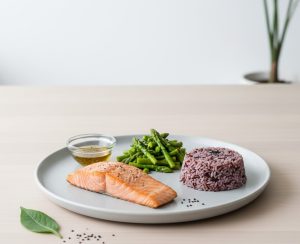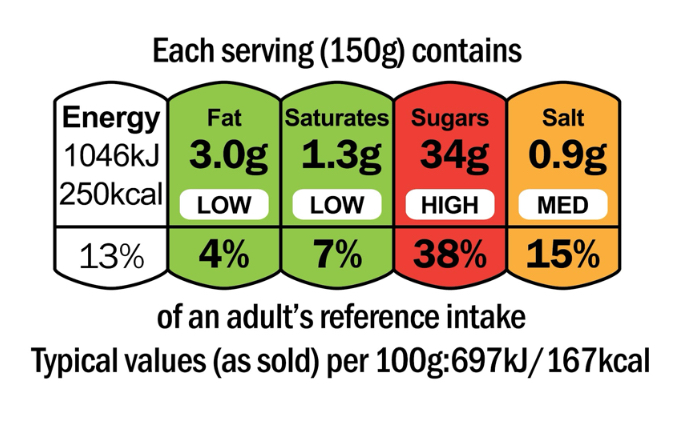
Steroids amplify muscle growth and performance, but without proper nutrition, their benefits can fall short. Athletes using anabolic steroids need a diet that fuels intense training, supports recovery, and maintains overall health. A well-planned nutrition strategy can maximize gains while minimizing potential side effects. This article explores dietary considerations for steroid users, offering practical guidance to optimize performance and well-being.
Why Nutrition Matters for Steroid Users
Steroids increase protein synthesis and nitrogen retention, creating an anabolic environment where muscles grow faster. However, this heightened state demands more nutrients to sustain energy, repair tissues, and support bodily functions. Without adequate nutrition, users risk fatigue, poor recovery, and even health complications. For those sourcing quality products, such as steroids Canada, pairing supplementation with a tailored diet is critical to achieving desired outcomes safely.
Protein: The Foundation of Muscle Growth
Protein is the cornerstone of any muscle-building diet, especially for steroid users. Steroids accelerate muscle protein synthesis, so you need more protein to meet this demand. Aim for 1.6 to 2.2 grams of protein per kilogram of body weight daily. Lean meats like chicken, turkey, and beef provide high-quality protein. Fish, eggs, and dairy are also excellent choices. Plant-based options, such as tofu, lentils, and quinoa, work well for those avoiding animal products. Timing matters too—spread protein intake across meals to ensure a steady supply for muscle repair. For example, a post-workout shake with 30-40 grams of protein can kickstart recovery.
Carbohydrates: Fuel for Performance
Carbohydrates are your body’s primary energy source, especially during intense workouts. Steroids increase glycogen storage, so carbs are essential to replenish these stores and sustain performance. Focus on complex carbs like oats, brown rice, sweet potatoes, and whole-grain pasta. These release energy slowly, keeping you fueled longer. Aim for 4-7 grams of carbs per kilogram of body weight, depending on training intensity. For a 200-pound athlete, that’s roughly 360-630 grams daily. Timing carb intake around workouts—such as a pre-workout meal with rice and vegetables—can boost energy and recovery.
Fats: Supporting Hormones and Health
Healthy fats are vital for hormone production, including testosterone, which steroids already amplify. Include sources like avocados, nuts, seeds, olive oil, and fatty fish such as salmon. Aim for fats to make up 20-30% of your daily calories. Avoid trans fats and limit saturated fats to keep your heart healthy, as steroids can strain cardiovascular health. For example, swap butter for olive oil when cooking, or add a handful of almonds to your snack routine. Balancing fats ensures energy and supports long-term health.
Micronutrients: The Unsung Heroes
Vitamins and minerals play a key role in recovery and immunity. Steroids can increase oxidative stress, so antioxidants like vitamins C and E are crucial. Citrus fruits, berries, and leafy greens provide vitamin C, while nuts and seeds offer vitamin E. Zinc and magnesium support testosterone production and muscle function—think oysters, pumpkin seeds, or a ZMA supplement before bed. Hydration is equally important. Steroids can cause water retention, so drink plenty of water to support kidney function and overall health. Aim for at least 3-4 liters daily, more if training heavily.
Meal Timing and Frequency
Eating consistently fuels the anabolic effects of steroids. Aim for 5-6 smaller meals daily to keep energy levels stable and provide a constant nutrient supply. Pre- and post-workout meals are critical. A pre-workout meal might include chicken, rice, and broccoli, eaten 2-3 hours before training. Post-workout, a shake with protein and fast-digesting carbs like fruit juice speeds recovery. Don’t skip breakfast—it sets the tone for the day. A sample breakfast could be eggs, oatmeal, and a banana, providing protein, carbs, and micronutrients.
Managing Side Effects Through Diet
Steroids can stress the liver, heart, and kidneys, but diet can help. Fiber from vegetables, fruits, and whole grains supports digestion and cholesterol levels. Omega-3 fatty acids from fish or flaxseed oil reduce inflammation and protect the heart. Limit sodium to manage water retention and blood pressure—avoid processed foods and season lightly. Regular blood work and medical checkups are wise, but a nutrient-dense diet acts as a first line of defense.
Supplements to Consider
While whole foods should dominate, supplements can fill gaps. Whey protein is convenient for hitting protein goals. Creatine monohydrate boosts strength and recovery—5 grams daily is enough. Branched-chain amino acids (BCAAs) may aid recovery, though they’re less critical if protein intake is high. Multivitamins ensure micronutrient needs are met. Avoid overloading on supplements; focus on quality and necessity.
A Sample Day of Eating
Curious what a day’s diet might look like? Breakfast: three eggs, two slices of whole-grain toast, and an avocado. Mid-morning snack: Greek yogurt with berries and a handful of almonds. Lunch: grilled chicken, quinoa, and steamed broccoli. Pre-workout: turkey wrap with spinach and sweet potato fries. Post-workout: whey protein shake with a banana. Dinner: salmon, brown rice, and a mixed green salad. This plan balances protein, carbs, and fats while prioritizing nutrient-dense foods.
READ ALSO: Build Your Muscles Naturally Through The Right Diet And Exercise
Long-Term Health and Sustainability
Steroid use demands a long-term view. A diet rich in whole foods not only enhances performance but also protects against side effects. Rotate protein sources to keep meals interesting—try new recipes like grilled shrimp skewers or lentil curry. Stay consistent but flexible; life happens, and occasional indulgences won’t derail progress. Listen to your body. If energy dips or recovery slows, reassess your diet. Consulting a nutritionist can provide personalized tweaks.
Optimizing nutrition while using steroids isn’t just about bigger muscles—it’s about smarter training and better health. By prioritizing protein, carbs, fats, and micronutrients, you create a foundation for success. Stay hydrated, time your meals, and choose whole foods over processed junk. With discipline and balance, your diet can amplify the benefits of steroids while keeping you strong and healthy for the long haul.





 A bright, healthy smile isn’t only about brushing and flossing. Your daily diet greatly influences the strength and resilience of your teeth. Food fuels your body, but it also affects your enamel, gums, and overall oral health.
A bright, healthy smile isn’t only about brushing and flossing. Your daily diet greatly influences the strength and resilience of your teeth. Food fuels your body, but it also affects your enamel, gums, and overall oral health.  A good question to ask yourself before consuming something is “Do I feel really hungry?” or “Do I just crave for something?”. This helps you tell the difference between eating out of feeling and being physically hungry.
A good question to ask yourself before consuming something is “Do I feel really hungry?” or “Do I just crave for something?”. This helps you tell the difference between eating out of feeling and being physically hungry. Sugar and artificial substances abound in packaged goods that boast “low-fat” or “diet-friendly” labels. Cravings and a halt to fat reduction could result from these. Whole, unprocessed food is a great pick.
Sugar and artificial substances abound in packaged goods that boast “low-fat” or “diet-friendly” labels. Cravings and a halt to fat reduction could result from these. Whole, unprocessed food is a great pick. Dental care has evolved beyond fillings and cleanings. Patients now expect dentists to guide them on how diet impacts oral health. This shift pushes dental practices to offer nutrition counseling alongside traditional services. For those looking to buy a dental practice, understanding this trend is key to success. Nutrition-focused care not only improves patient outcomes but also boosts practice value. How can buyers assess and grow these services? And what role do acquisition experts play in this process?
Dental care has evolved beyond fillings and cleanings. Patients now expect dentists to guide them on how diet impacts oral health. This shift pushes dental practices to offer nutrition counseling alongside traditional services. For those looking to buy a dental practice, understanding this trend is key to success. Nutrition-focused care not only improves patient outcomes but also boosts practice value. How can buyers assess and grow these services? And what role do acquisition experts play in this process?
 The Paleo diet is based on whole, unprocessed foods like lean meats, fish, nuts, fruits, and vegetables. These foods help regulate blood sugar levels and reduce inflammation, key factors in preventing obesity. By eliminating refined sugars and grains, Paleo eating stabilizes energy levels, keeping hunger at bay for longer.
The Paleo diet is based on whole, unprocessed foods like lean meats, fish, nuts, fruits, and vegetables. These foods help regulate blood sugar levels and reduce inflammation, key factors in preventing obesity. By eliminating refined sugars and grains, Paleo eating stabilizes energy levels, keeping hunger at bay for longer. A dietitian may assist you develop a sustainable eating plan and offer individualized nutrition recommendations. Regular physical activity helps you to maintain good eating habits since it enhances both your physical and mental state.
A dietitian may assist you develop a sustainable eating plan and offer individualized nutrition recommendations. Regular physical activity helps you to maintain good eating habits since it enhances both your physical and mental state. Emphasize especially fruits, vegetables, legumes, and whole grains. These supply antioxidants, fiber, and vital minerals.
Emphasize especially fruits, vegetables, legumes, and whole grains. These supply antioxidants, fiber, and vital minerals. Did you know that what you eat directly affects your brain and body performance? Research has consistently shown that a balanced diet plays a pivotal role in boosting mental clarity, emotional well-being, and physical performance. For men, who often face unique health challenges, nutrition is a key factor in maintaining optimal strength—mentally and physically.
Did you know that what you eat directly affects your brain and body performance? Research has consistently shown that a balanced diet plays a pivotal role in boosting mental clarity, emotional well-being, and physical performance. For men, who often face unique health challenges, nutrition is a key factor in maintaining optimal strength—mentally and physically.
 Building muscle doesn’t need to rely on synthetic enhancers or fad supplements. Many people achieve impressive results by focusing on the right foods and supplements. Key nutrients and balanced meals lay the foundation for sustainable gains, while smart, safe supplementation helps reach muscle growth goals faster and safely.
Building muscle doesn’t need to rely on synthetic enhancers or fad supplements. Many people achieve impressive results by focusing on the right foods and supplements. Key nutrients and balanced meals lay the foundation for sustainable gains, while smart, safe supplementation helps reach muscle growth goals faster and safely. A balanced diet does more than nourish the body; it can also provide essential support for brain health. Nootropics—also known as brain boosters—offer powerful benefits when combined with a nutrient-dense diet. From enhancing focus and memory to promoting mental clarity, nootropics can amplify the brain’s performance naturally. Incorporating foods like green tea, dark chocolate, and omega-3s can significantly boost your cognitive wellness.
A balanced diet does more than nourish the body; it can also provide essential support for brain health. Nootropics—also known as brain boosters—offer powerful benefits when combined with a nutrient-dense diet. From enhancing focus and memory to promoting mental clarity, nootropics can amplify the brain’s performance naturally. Incorporating foods like green tea, dark chocolate, and omega-3s can significantly boost your cognitive wellness. Sexual health is a fundamental part of overall well-being, and nutrition plays a significant role in supporting it. What we eat affects more than just physical health — it also impacts hormones, energy levels, and even libido. Proper nutrition can help enhance sexual function, boost energy, and improve mood. The good news? Certain foods packed with nutrients can support women’s sexual health.
Sexual health is a fundamental part of overall well-being, and nutrition plays a significant role in supporting it. What we eat affects more than just physical health — it also impacts hormones, energy levels, and even libido. Proper nutrition can help enhance sexual function, boost energy, and improve mood. The good news? Certain foods packed with nutrients can support women’s sexual health. There are various benefits when nootropics are included into food and drink. It offers a practical and fun approach, first of all, to include these cognitive boosters into daily living. Furthermore, eating and drinking nootropics could help to hide any bad tastes or textures connected with conventional supplements.
There are various benefits when nootropics are included into food and drink. It offers a practical and fun approach, first of all, to include these cognitive boosters into daily living. Furthermore, eating and drinking nootropics could help to hide any bad tastes or textures connected with conventional supplements.
 Wine and juice prepared from red grapes contain resveratrol. It may help weight loss and hay fever. Resveratrol may increase blood artery diameter and decrease blood clotting. With the consumption of resveratrol, human’s body has the ability to reduce discomfort, combat disease, alleviate swelling, and decrease the level of sugar in the blood.
Wine and juice prepared from red grapes contain resveratrol. It may help weight loss and hay fever. Resveratrol may increase blood artery diameter and decrease blood clotting. With the consumption of resveratrol, human’s body has the ability to reduce discomfort, combat disease, alleviate swelling, and decrease the level of sugar in the blood.